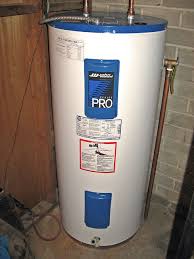What can I do about a problem water heater?
If odor is in the hot water only, simply replacing the anode in your water heater may fix it.
Odor from a hot water heater can be a perplexing problem. Theories of cause and cure abound. Usually blamed on hydrogen sulfide gas, water heater odor is most often associated with well water, but it can happen with city water as well. If the odor is in both hot and cold water, the problem is in the well and a whole house treatment is required. The suggestions below are for situations where the odor is in the hot water only. –Editor.
Below are some strategies to try.
Replace or remove the magnesium anode. Many water heaters have a magnesium anode, which is attached to a plug located on top of the water heater. It can be removed by turning off the water, releasing the pressure from the water heater, and unscrewing the plug. Be sure to plug the hole. Removal of the anode, however, may significantly decrease the life of the water heater. You may wish to consult with a reputable water heater dealer to determine if a replacement anode made of a different material, such as aluminum, can be installed. A replacement anode may provide corrosion protection without contributing to the production of hydrogen sulfide gas. There are also replacement “lifetime” anodes that use electricity that are almost always successful at getting rid of odors in the hot water heater.
Disinfect and flush the water heater with a chlorine bleach solution. Chlorination can kill sulfur bacteria, if done properly. If all bacteria are not destroyed by chlorination, the problem may return within a few weeks.
Increase the water heater temperature to 160 degrees Fahrenheit (71 degrees Celsius) for several hours. This will destroy the sulfur bacteria. Flushing to remove the dead bacteria after treatment should control the odor problem.
Reference: Minnesota Dept. of Health. We have had several customers who speak highly of the electric anodes.





